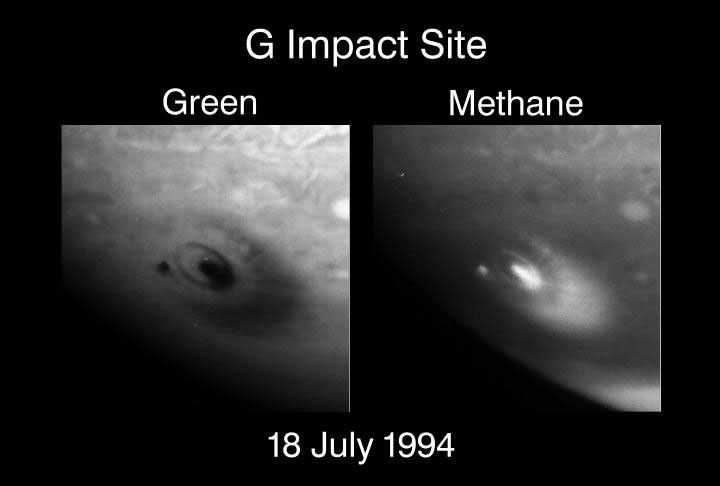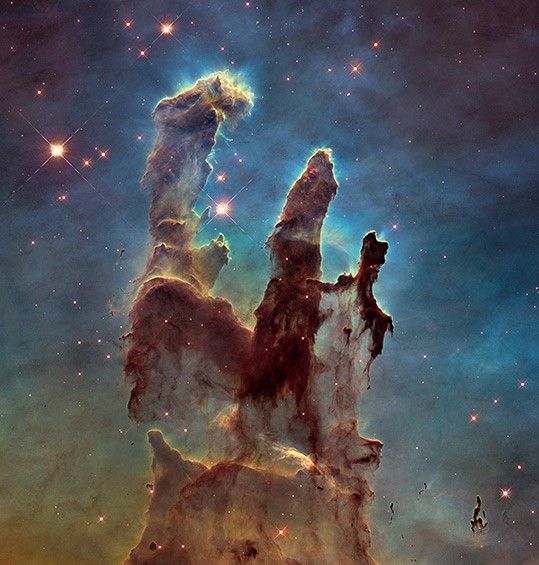1 min read
A Large Comet Impact on Jupiter

These images of Jupiter, by NASA's Hubble Space Telescope, reveal the impact sites of fragments "D" and "G" from Comet Shoemaker-Levy 9. The upper right corners of each image points north, showing the impact sites located in Jupiter's southern hemisphere at a latitude of 44 degrees.
The large feature was created by the impact of fragment "G" on July 18, 1994 at 3:28 a.m. EDT. It entered Jupiter's atmosphere from the south at a 45-degree angle, and the resulting ejecta appears to have been thrown back along that direction. The smaller feature to the left of the fragment "G" impact site was created on July 17, 1994, at 7:45 a.m. EDT by the impact of fragment "D".
The left image was taken through a green filter (555 nm) at 1 hour and 45 minutes after the fragment "G" impacted the planet. The "G" impact has concentric rings around it, with a dark central spot 1,550 miles (2,500 km) in diameter. This dark spot is surrounded by a thin dark ring about 4,660 miles (7,500km) in diameter. The dark thick outermost ring's inner edge has a diameter of 7, 460 (12,000 km) – about the size of earth.
The right image shows the same impact site as seen through the filter sensitive to methane (at 989 nm). The darker expanse around the brighter impact site betrays the presence of methane clouds that absorb sunlight at 889 nm wavelength. The impact site appears bright due to sunlight reflected off material, most likely aerosols, ejected high above the methane cloud layers.
- Object NameObject NameA name or catalog number that astronomers use to identify an astronomical object.Jupiter, Comet P/Shoemaker-Levy 9
- Release DateJuly 20, 1994
- Science ReleaseHubble Image of Large Comet Impact on Jupiter
- CreditJohn Clarke, University of Michigan and NASA
Share
Details
Claire Andreoli
NASA’s Goddard Space Flight Center
Greenbelt, Maryland
claire.andreoli@nasa.gov































